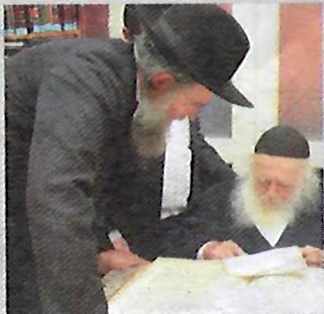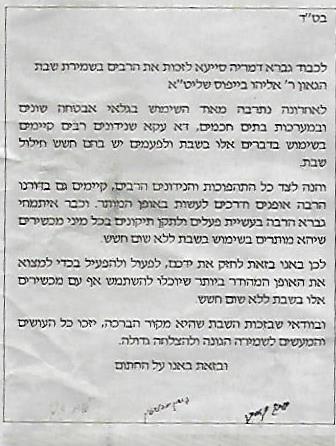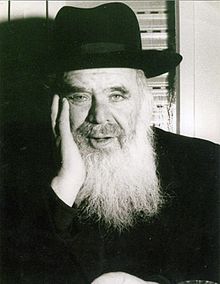  |
|
| |||||
This Google Custom Search looks only in this website. Mishmeres Shabbos is at the Forefront of the Interface between Security Technology and Halacha
Technology is advancing and people's perceptions change. Security cameras are almost everywhere nowadays, and they raise a number of halachic issues.
Perhaps the first lesson we may draw from the ubiquitous cameras are an increased consciousness of the constant Heavenly surveillance, that "all your deeds are written in a book."
Now there is hardly any place without a security system, beginning with the ever-present security cameras and then there are the alarms which are activated upon any change or unusual movement. There is the `smart house' system which runs an entire household in a most efficient digital manner, and the smoke and fire alarms, including all types of sensor devices activating all kinds of systems.
What has caused the recent rise in rabbinical attention to these issues?
The digital age and the advance of technology has raised a lot of new issues which the gedolei hador must decide.
For example, a large, well known firm which maintains a special safe which houses many items requiring maximum security, items which are sometimes needed on Shabbos. Lately, this safe had an electronic chip installed which records every opening of the safe. Those who presented the question wished to have its usage examined for Shabbos use.
Many issues which ostensibly seem very obvious and widespread, and seemed to be applicable from one to the other, are not at all similar.
To the notable one who assists in providing merit to the public through Shabbos observance
HaGaon R' Eliyohu Beifus shlita
Of late, there has been increased usage of various security detectors and Smart Home systems. Precisely, here, many are the problems arising regarding Shabbos observance and the risk of Shabbos desecration.
Alongside all of these issues and questions, our generations has been able to provide many ways and means of circumventing the problems. The Rav has been very successful in solving the difficulties of the various electronic devices and adapting them to permissible usage on Shabbos without any problems.
The Reform work constantly in Israel to advance their interests but also to disrupt the chareidi way of life whenever they have a chance.
Recently the publication Mekor Rishon hosted a conference at which there was a panel that included a well-known and influential Orthodox rabbi and a woman Reform cleric.
One of the main issues that is raised by the Reform is whether they are truly a Jewish movement or something else. Many observers have said it is the latter, that their behavior and practice does not put them within the Jewish tradition.
Undoubtedly, among the members of the temples and Reform communities there are also Jews who are Jews according to the Halacha alongside many who are not Jews halachically but are members all the same. The question is not whether Reform Jews are technically Jews, since that depends on each individual, but rather, if Reform is really Judaism, if it lies within the Jewish tradition, even broadly conceived! It would seem not.
Agudath Israel of America expressed its deep disappointment in New York Governor Andrew Cuomo and his administration for shuttering overnight camps for tens of thousands of children.
The statement by State Health Commissioner Howard Zucker, is a blow to the physical, socioemotional, and psychological well-being of children who have already endured forced quarantine for nearly three months, as well as to their religious development.
Especially troubling about this development is the fact that it comes at a time when cases of COVID-19 in NY have plummeted for six consecutive weeks. Further, among the nearly 8 million COVID-19 cases worldwide there have been few cases, and even fewer serious cases, among children.
In 5732, the public's attention was caught by the proposed establishment of a Beis Hamedrash Le'Rabbonim in Yerushalayim. The venture met with sharp opposition from the gedolim of the time, who recognized the great danger posed by an institution of this nature. But there were those who did not understand why the gedolim reacted as sharply as they did. It was during this period that the HaRav Chaim Shmuelevitz zt'l delivered a shmuess in Yeshivas Mir in which he dwelt on the special sense of "smell" with which men possessing vast Torah wisdom and fear of Hashem, are endowed. That proposal was the context in which it was delivered. This is the first publication of this shmuess which was made available to us by HaRav Shmuel Yaakov Bornstein zt"l. It has been rendered into English from notes which were made at the time.
One Man's Potential
Before proceeding to the issue of the day, which is a matter of the utmost consequence, there are several other points I would like to speak about. The first subject I want to consider in this shmuess is the limitless power of man.
How great is a person's strength? Just how much is a man able to achieve? How far can he reach? His capabilities are limitless! His potential is boundless!
In describing how Yaakov Ovinu spent his first night after setting out on his journey to Choron, the posuk tells us, "he lay down in that place"—on Har Hamoriah but not elsewhere. Chazal tell us that during the twenty four years that he spent in the beis hamedrash of Shem and Ever, he never lay down. This was the first time.
From Our Archives
Back To Kobrin, Baranovitch And Mir: An Interview With HaRav Aharon Kreiser, zt'l
by Rabbi Dov Eliach
Introduction: A Personal Memoir
Ten years have passed since I met Rav Aharon Kreiser zt'l. We met in one of the botei medrash of the Lakewood Yeshiva, where he lived and learned when he was older. When I came across him he was embroiled in lively Talmudic debate with some of the members of the kollel and I found him to be as he had been described to me earlier.
His excitement over divrei Torah, his tremendous love of Torah and his warm emotional character were all evident at that first encounter. They were also apparent in the course of the interview which I later conducted in his home.
Rav Aharon provided me with a vivid and heartwarming description of the Torah life in the yeshivos in Europe where he learned and also with portraits of the well- known figures who influenced him, as he saw them. His account is a personal memoir. In the interests of accuracy, it should be noted that he spoke only for himself, not for others who also went through the same experiences.
Of the period in Shanghai he remarked, "Everybody's Shanghai is different. The salient feature of my Shanghai was utter ignorance of what was transpiring around us."
In a similar vein he commented when speaking about Baranovitch that: "Everybody has his own Reb Elchonon . . . If you hear the same thing from many different people, you can conclude that it might be the truth."
A Fresh Start: Understanding Yom Kippur Katan
by Rabbi Daniel Yaakov Travis
A Day of Repentance
A few minutes before reciting Yom Kippur Katan, I tried to illustrate the tremendous importance of this tefilloh to a close friend, with the following story. A talmid chochom once told the Steipler that his brothers had passed away at the age of sixty. He was approaching that age and was concerned that perhaps there was some type of Heavenly decree on his family.
The Steipler told him that he should be scrupulous to recite Yom Kippur Katan every month, for this tefilloh has the power to annul such decrees. For some time he followed his advice and made sure to say Yom Kippur Katan every month.
One night as he was eating supper, his wife reminded him to say Ya'aleh VeYovo in bentching. Taken aback he responded that he did not realize that it was Rosh Chodesh today. That very month he passed away (Cited in Peninei Kehillos Yaakov p.39).
After listening carefully to my words, my friend replied "Sometimes stories like that are difficult to accept. However this one I believe one hundred percent, because his son is sitting behind you."
EARLIER EDITORIALS
A Mission to Spread
Daas Torah
Looking for the
Best in Yiddishkeit
The Immorality
of Palestinian Combatants and Noncombatants
|
|||||




.jpg)





